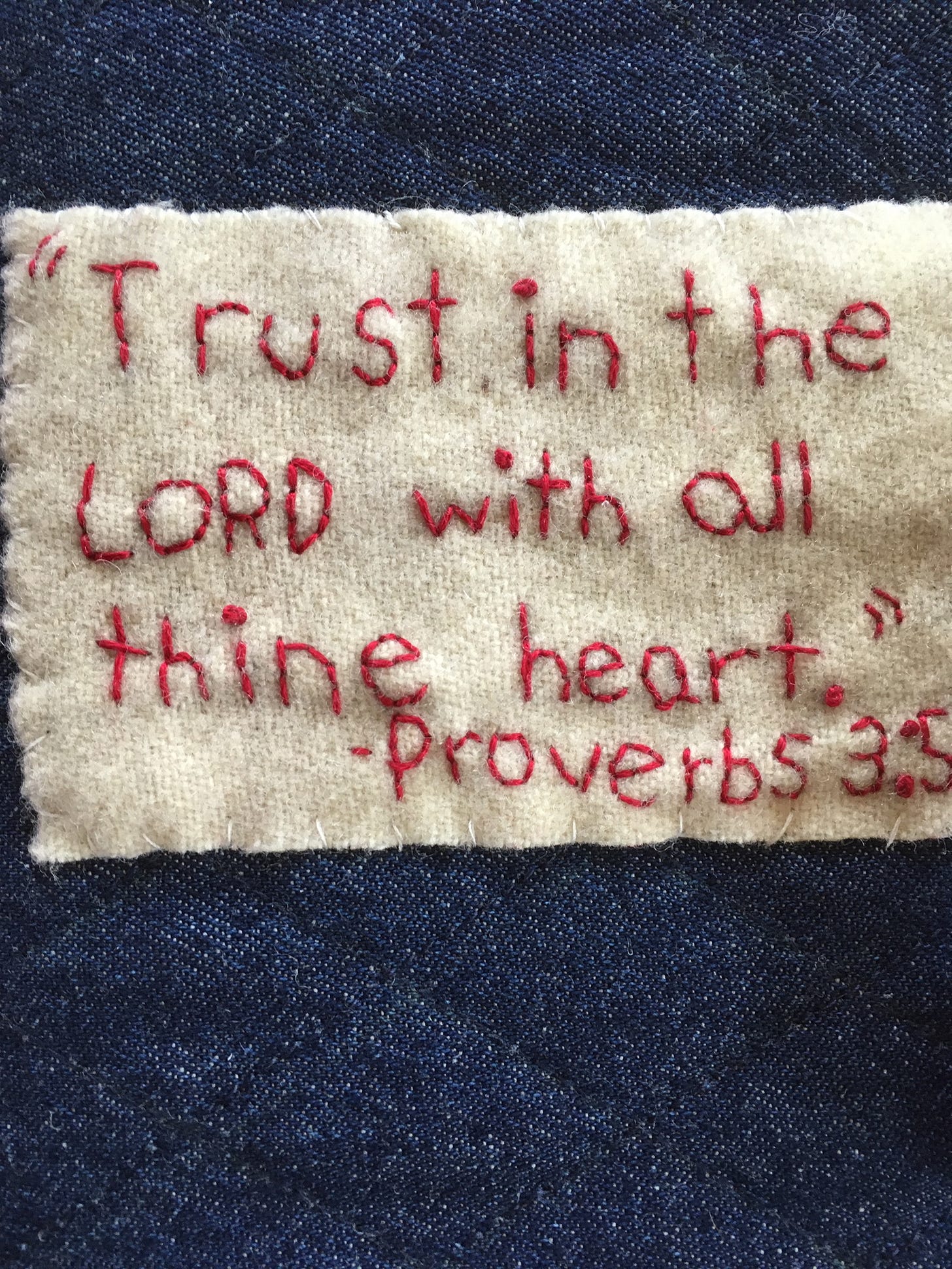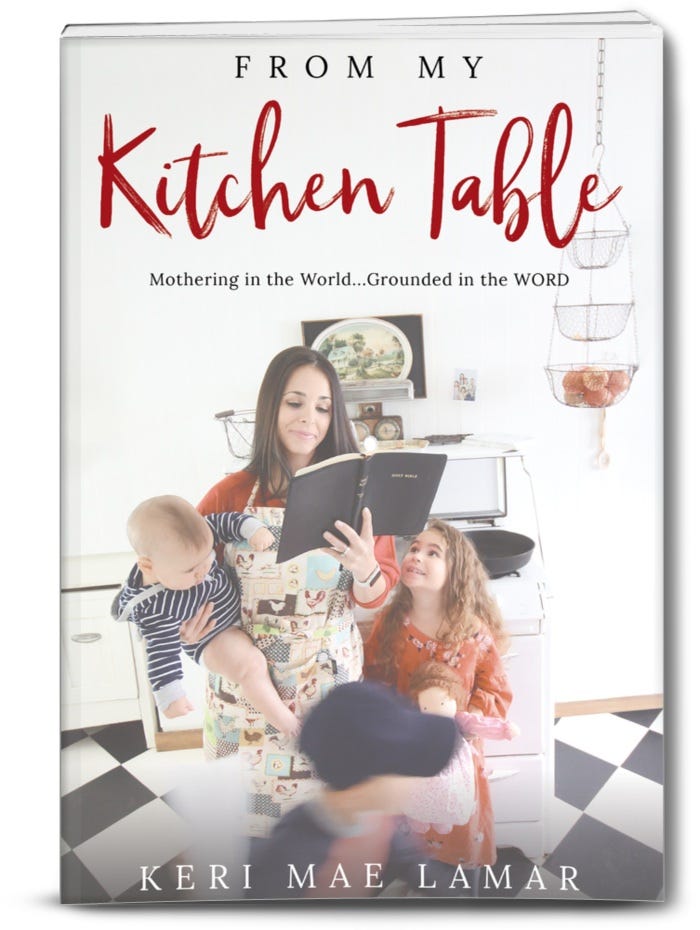Tuesday, January 8, 2008 12:45PM
The most needful thing I teach my children is how to read and study God’s Word. There is so much promise of blessing for knowing and obeying God’s voice, why on earth would I not want them to know how to read and understand the Bible for themselves? It is the most important time of our home school.
It wasn’t so long ago that every literate person had a basic knowledge of the Bible. It didn’t matter if you were a believer, an unbeliever, or a make-believer (hat tip to J. Vernon McGee), knowledge of the Bible was taught in the public schools and was foundational for a culture of common experience and good morals. Furthermore, this literary masterpiece was studied not only for the variety of genres, but for its history and scientific observations, and many would not know where phrases such as “the writing on the wall” came from, or even meant, without knowledge of the accounts within.
All of that is interesting, but has no bearing on why we teach our children the Bible. We teach our children the Bible because it is the Word of God, and is profitable for doctrine, for reproof, for correction, for instruction in righteousness (2 Timothy 3:16). We desire our children to know and understand why their conscience rightly convicts them of wrong-doing, and to show them the law--the ten commandments--that God has graciously made us all inherently aware. We want them to have an understanding of the whole arc of history, and to see how God’s promises and prophecies were fulfilled in the coming of Jesus Christ. We want them to know the gospel, that Jesus did not die for the righteous, for those of no need, but for the broken and humble sinner, for a just and complete payment for the holy laws that had been--and would be--broken. And we have no greater joy than to see our children repent, trust Jesus, and walk in the light as He is the light, in truth.
It doesn’t rightly matter how wonderful the education, how successful the career, how full the family or how happy the life is if a child loses his soul for eternity after the short vapor of a life he or she embraces. So we teach the Bible, praying always that sword of the Spirit will be quick and powerful.
The best way to do this is to simply read the Bible. We use the King James version as it is the easiest to understand, even for a child. We also use story books, and have listened to George Sarris read aloud beautifully.
Below are some methods we have used throughout the years in our endeavor to teach the Bible. The “method” is not as important as the consistent and persistent weight of importance you give not only on teaching the Bible, but on reading and studying it for yourself. Year by year, little by little, knowledge grows. We cannot save our own children--that is God’s work--but we must be faithful to the task of teaching them diligently. If we truly love God, this will happen naturally.
assign readings, either chapters or verses
verse handwriting and copywork
for toddlers, Christian coloring books
memorization (we love Scripture Memory Fellowship for this)
application: is there something in your reading that God wants you to know-do-be?
read aloud: scripture, devotionals, story books, prayers
read and sing the old hymns; they are rich in theology
study the catechism
learn how to use Bible study tools: atlas, dictionary, concordance
how to do a topical study
how to do an inductive study
faithful, local church attendance
reports on people, places, events
rewrite or retell accounts--drama, art, written assignments
workbooks such as Studying God’s Word
proverbs DVDs
small group Bible studies
vocabulary work, such as regeneration, sovereignty, propitiation
Hebrew/Greek language study
listen to expository preachers’ sermons
take a college level course
(continuing from the head of the chapter…) We begin the school day with “Bible Time”. What we do is gather around the couch, pray for understanding, and read a chapter out of a children’s story or devotional book. We talk about what part both people played: the man (or woman) and God’s. It’s a good way to try to glean understanding, even for adults. Then, we pray different prayers depending on what day it is: Monday--prayers of faith (needs/wants), Tuesday--prayers for family members, Wednesday-- the Lord’s prayer, Thursday--prayers for missionaries/the persecuted, Friday--prayers for our church/pastor. Afterwards, we work on our memories verses. We use books from Scripture Memory Fellowship and work towards prizes of other literature books and certificates.
For our individual Bible Study time, we do two different things. One is that each child picks apart a Bible verse during the week. (I like to) use the Doorposts For Instruction in Righteousness to work with character issues as needed, and choose the verse for the week. These are their assignments during the week: Monday--write the verse, Tuesday--illustrate the verse, Wednesday--write “This means......”, Thursday--write “I will.....” , Friday--memorize verse and say it to Daddy.
You can’t give what you don’t have. Below is an example of some of my own Bible studies I did when my children were young, and shared on my original blog. Maybe they would inspire you to dig into your own Bible more?





